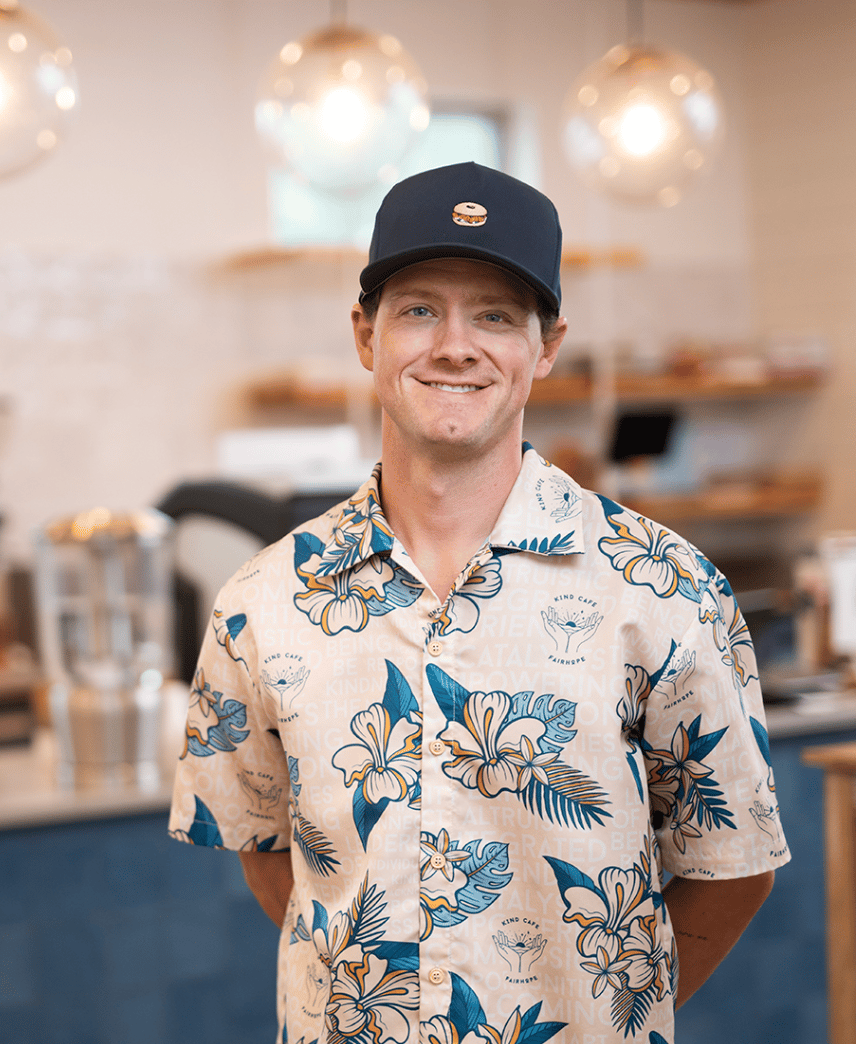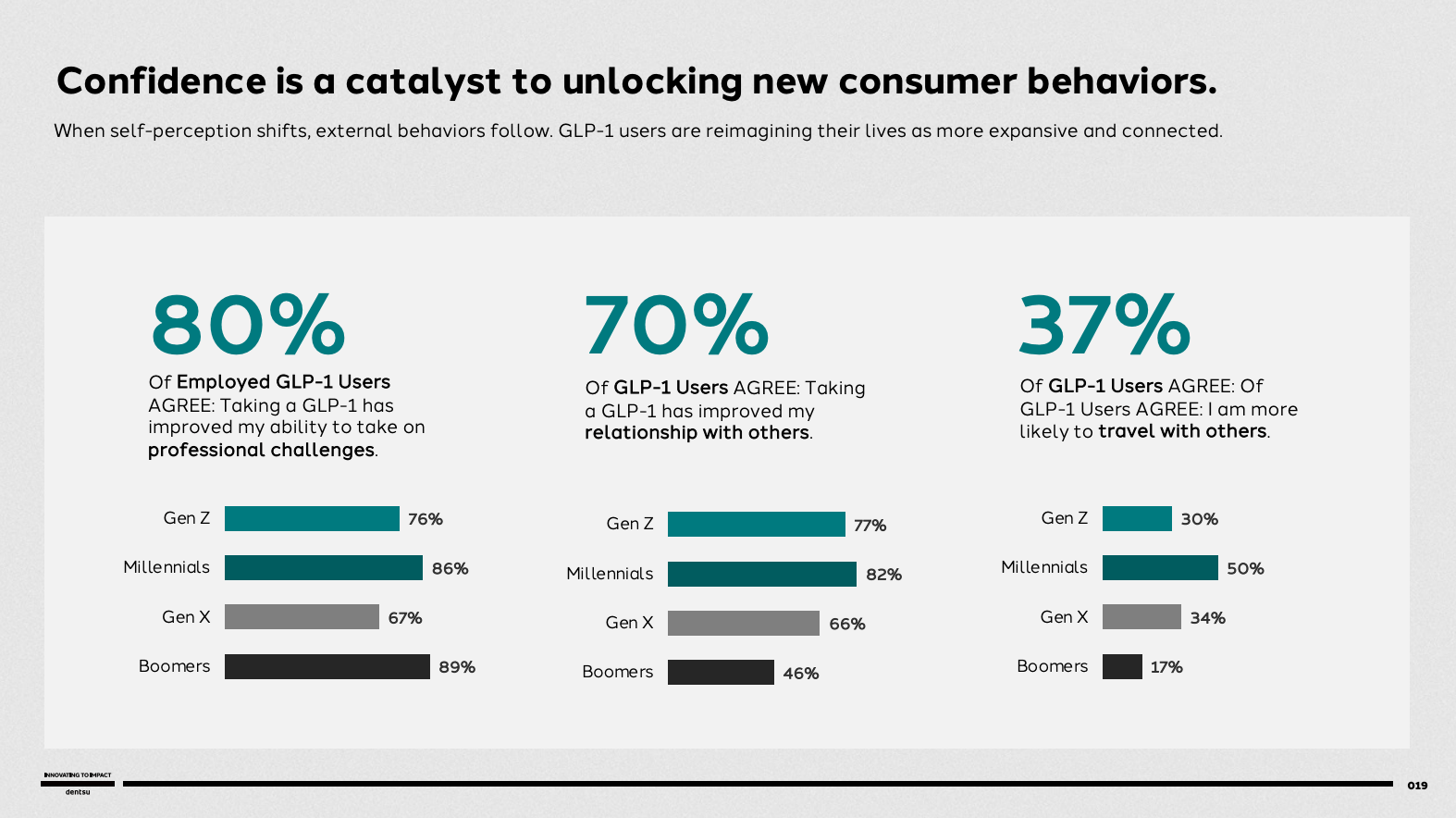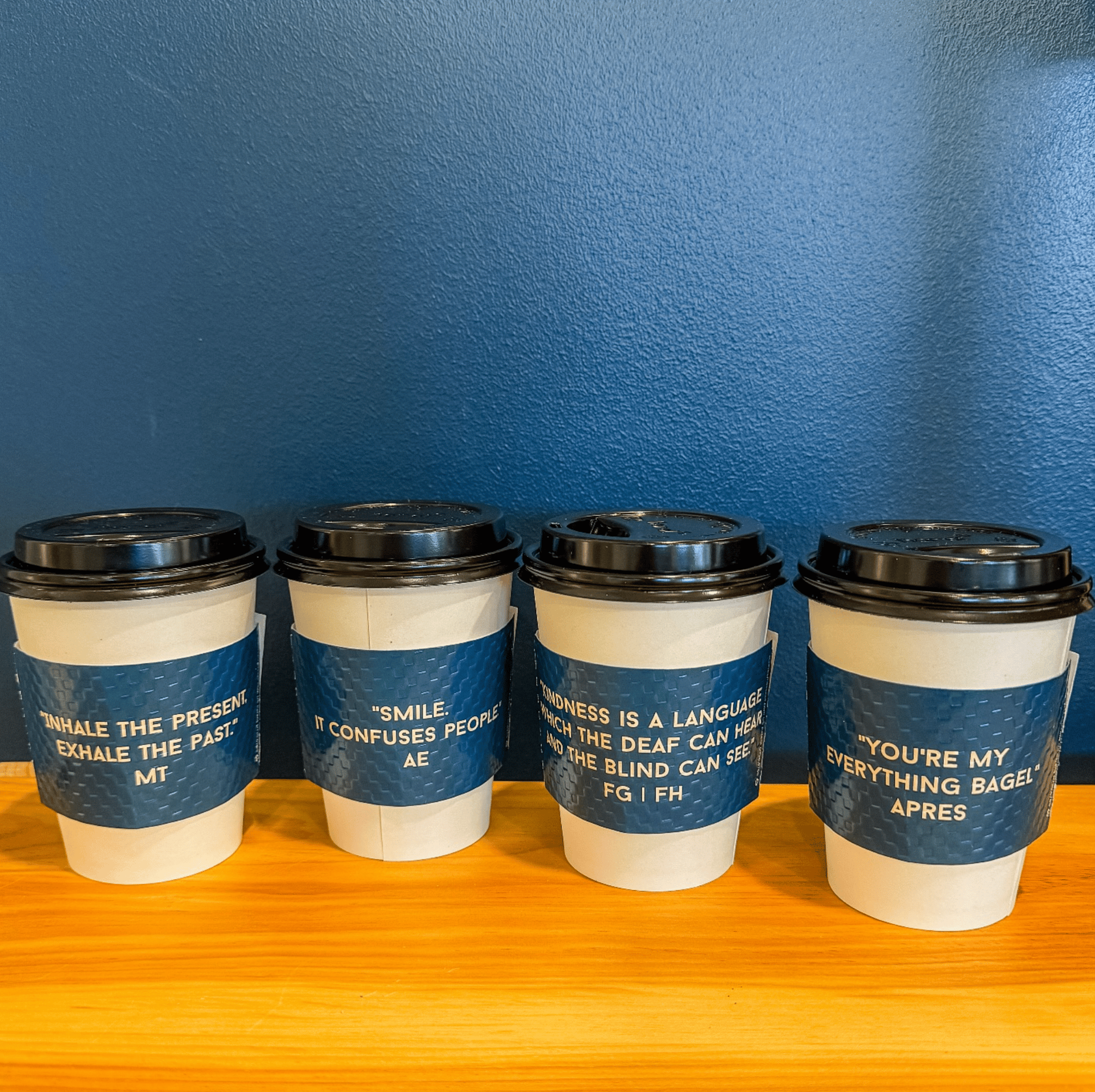I talk about storymaking vs. storytelling. Here’s the difference: storytelling is what you say about your brand. Storymaking is what people experience through your brand. We're living in a cultural time flooded with content, and trust isn’t built through words alone. It’s built through actions that match the message. The conscious voices newsletter is about helping conscious leaders build brands that both share a message and depict a clear path for conscious consumers to care, commit and take action. Your voice matters, your stories shape culture. You’re here to be a storymaker.
Hello, hello storymaker.
Word on the street is that “your content needs more tension.” Not that it’s a wrong approach to storytelling. But does it deliver what’s needed right now? I mean, sure, tension grabs attention, but that’s about it. But you’re here to share stories that shape culture through your brand, so you’ll need to give a little more than tension for the sake of gaining attention.
In a culture already wired for burnout and dopamine fatigue, do you really need to escalate tension? Or can you offer something different? What if kindness is the most ‘disruptive’ message a brand can deliver right now?
In this cultural moment, which feels like a transitional era, I’d like to argue that kindness in your content messaging becomes your greatest asset.
The old playbook: Trigger tension > fulfill it > trigger it again is not going to work in this new post-craving economy we’re entering. So what does that even mean?
ICYM: The demand for less consumption (as we know it), noise and frenzy is being challenged by the rise of conscious consumers who crave a newfound kind of intention, connection and kindness. Essentially, people are now investing more to buy less. (More on this in a bit).
So, if your brand thrives by stoking people’s cravings for status, stimulation or success, this cultural shift is an existential risk. But if your brand is rooted in creative intention, connection and kindness, then this is your moment.
In this issue, we'll explore:
Why GLP-1 drugs are shaping human behavior toward intentional consumption.
How a local café built a people-first brand through kindness + lessons learned.
What messaging strategies matter most for conscious brands this season.
The Post-Craving Economy is Here
The 20th century was built on the belief that humans would always want more (aka: Capitalism). But that’s quickly changing because of GLP-1 drugs like Ozempic and Wegovy. I KNOW! 🙀 Who would have thought? And these suppressors aren’t just muting hunger, they're also altering people's impulses and even cravings. 😯
They're rewiring our reward systems; dampening dopamine loops that once fueled all forms of consumption, not just in food consumption, but impulse buys, late-night snacking, fashion hauls, and even last-minute travel bookings.
Today, confidence is a catalyst for unlocking new consumer behaviors. And with it, the old playbook: trigger tension > fulfill it > trigger it again, is collapsing.
So, with a newfound comfort in the way people are behaving, craving more is not where we are headed; conscious consumers are investing differently. And it’s not about consuming less, it is about reconsidering what they invest in. People are still buying, but they're more conscious about it. They're focused on:
-Quality > quantity
-Trust > cravings
-Connection > transaction
-Kindness > performance
In short, dopamine hits are no longer the motivator. Connection is.
These drugs are accelerating a deeper, culture-wide shift toward trust, intention and emotional clarity. Storymaking is the solution to this new cultural shift.
So here’s the challenge for brand leaders:
If you can no longer rely on urgency or “tension” to drive demand, how will you build trust over time? Tension in your brand messaging and content strategy will get you the quick attention hits, but that’s it. Hence, storytelling alone won’t cut it. And storymaking becomes essential.
Case in Point
One of the clearest examples I've seen of this shift—from tension-driven marketing to connection-based storymaking—is a local café in Alabama that’s redefining what hospitality can feel like.
Spotlight: People-First Brand Rooted in Connection

Alex Pikul
Alex Pikul: Connection Activator, Kind Café Founder
Background: Former B2B software sales turned hospitality entrepreneur.
Achievement: Built a people-first café culture that has inspired other local businesses to adopt community-first practices.
Lesson in conscious leadership: Your point of view matters. Stick with it, even when others can’t see what you see.
I reached out to Alex Pikul when thinking about a conscious leader who’s putting in the work to lead with kindness. He didn’t just leave corporate tech to make lattes (though not a bad gig). He left so he could make space for building a more connected community rooted in creative intention, trust and kindness.
His Alabama–based Kind Café was born in response to the transactional, impersonal tone of post-pandemic hospitality.
The communication style at Kind is totally intentional:
Community > commodity
Positive interactions, even if imperfect at times
An employee culture based on care and trust
Kind Café isn’t another trendy café on the rise. It's trustworthy, Alex and the crew (known as Kind Ambassadors) are shaping the culture around them. They do say it only takes one person to see the change you want in your community.
From our conversation, I want to highlight a few mentions:
Camila: What has it felt like to create a space that didn’t exist before? Essentially, how have you operationalized kindness?
Alex:
The community has embraced us, even if they didn’t at first. Some customers used to say they didn't want to be greeted. They just wanted to grab coffee and leave. And at first, that hurt. But I've learned: not everyone is ready for kindness, some people haven't chosen happiness yet—and that's okay. We're here for the ones who have.
Camila: Have you seen other local businesses shift how they operate because of what you've modeled at Kind Café?
Alex: What's been interesting in a smaller community now is that all these other businesses are following what we do. You've got other businesses writing nice messages on cups, and others being much more friendly, making sure their team is greeting customers who walk in. They're trying to enhance their experience with that kind of people-first culture we've always done.
Some business owners are probably like, “Why are people copying me?” or “They're impeding on my territory”
But that's your purpose—and that’s what you want to see. You want to inspire other businesses to also donate to nonprofits, to feature nonprofits, and to do different events like that. What's really interesting is seeing these other businesses start to pick up aspects of that. Because then what happens is now we've got to get better. So, how can we elevate that experience even more? And then everybody wants that.
This conversation with Alex brought to light the idea that your messaging evolves like relationships do (I wrote about it here). By choosing kindness as his core operating principle, he didn’t change customer interactions; he shaped the culture of his town.
This is what people are now craving. Less impulse shopping driven by desires. More intentional, meaningful experiences. It’s going back to what makes us human: A connected community, rooted in creative intention, trust and kindness.
Things I'm Noticing:
New Cultural Insight - Post‑Craving Economy. We're on the edge of a post-craving era. GLP-1 drugs like Ozempic and Wegovy aren’t just suppressing appetite; they're rewiring dopamine loops across culture. Early signs:
Less impulse shopping, fast fashion, bingeing
More interest in slow, intentional, meaningful experiences
Lowered demand for overstimulation and instant gratification
In this shift, old marketing models crumble. What remains?
Creativity. Intention. Connection. Kindness. So, conscious brands must shift:
From volume → value
From noise → nuance
From growth → gravitas
Leadership Insight - Kindness is A Leadership Quality.
Leadership that builds trust, and that trust ripples beyond metrics.
Saying no to growth that harms well-being
Holding space for authentic voices, not just polished messaging
Leading with presence, not burnout
Investing in people, not just profit
Kindness in Action - People-First Brand Messaging.
Scaling, with emotional storytelling, human-centered messaging, and mission-driven strategy. We've seen it with Kind Café (brand messaging on people-first), NatureSweet (Farmworker stories), Vita Coco (DIY pop-up treat surprise), On x Sesame Street (Soft wins campaign), Kenneth Cole (Purposeful voices).
If the world stops craving, conscious consumers’ values will deepen, and businesses will shift from volume to relevance. This isn't the end of capitalism, it’s the start of a conscious version.
Are we ready enough to build it? What do you think?
Till next time,
Camila from Conscious Voices
📣 Know someone building a conscious brand who needs this? Forward away.



